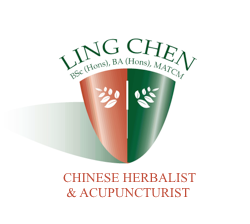

A British study found that rates of success were twice as high among those having the alternative therapy. Fertility experts said the findings were interesting and statistically significant.
However, they warned that it was unclear whether the apparent benefit stemmed from the traditional Chinese practice - or from a placebo effect, because the women became more relaxed after time was invested in them.
The study by Homerton University Hospital in London, involved 160 couples suffering from fertility problems. Half were assigned to have four sessions of acupuncture during their IVF cycle.
One year on, those who underwent the ancient practice, involving fine needles, had achieved pregnancy rates of 46.2 per cent. Among those who had not, pregnancy rates were just 21.7 per cent.
Dr Adam Balen, chairman of the British Fertility Society described the findings as “very interesting”.
Published Friday 13 July 2018
By Tim Newman
The ancient practice of acupuncture has been tested in a range of conditions — with varying results. Recently, it has been pitted against the joint pain that is associated with early breast cancer treatment.
Could acupuncture reduce drug-induced arthralgia?
Aromatase inhibitors are commonly used in the treatment of hormone-sensitive breast cancer.
Though effective, they produce unpleasant side effects that include arthralgias, or pain and stiffness in joints.
Occurring in around half of all people who take aromatase inhibitors, arthralgia can be severe enough to cause some people to drop out of treatment.
Finding a way to minimize the discomfort will help women to tolerate these drugs and improve survival rates in the long run.
Acupuncture is a controversial topic among researchers. Although it has been used for centuries to treat innumerable diseases, its benefits for pain relief beyond the placebo effect have been questioned. Reliable evidence backing acupuncture is still hard to come by.
Although evidence for acupuncture as a treatment for PsA specifically is lacking, many studies have shown that acupuncture works well in relieving other types of joint pain:
Some research has suggested that acupuncture may be worth considering:
To investigate further, the researchers decided to focus predominantly on one outcome — hot flashes. Often continuing for a number of years, hot flashes affect more than three-quarters of people who experience the menopause, and they can be distressing.
Their study included 70 women who were experiencing menopause. The team gave half of the women one 15-minute session of standardized acupuncture a week for 5 weeks. The acupuncturists involved in the study had an average of 14 years' worth of experience.
The remaining individuals were part of the control group, and they received no intervention. The study findings feature in the journal BMJ Open this week.
After just 3 weeks, the participants in the acupuncture group noted a decrease in hot flashes.
At the 6-week mark, 80 percent of the women in the acupuncture group believed that the sessions had helped them.
The acupuncture did not only reduce hot flashes. Those in the experimental group also experienced significant drops in the severity or frequency of sweating (including night sweats), sleep disturbances, emotional symptoms, and skin and hair problems.
Published Thursday 21 February 2019
By Tim Newman
Menopause typically begins in the sixth decade of life and continues for an average of 4–5 years. The symptoms of menopause can reduce overall well-being and affect every facet of life.
Hormone replacement therapy (HRT) is effective for many people, but, on top of its side effects, HRT can increase the risk of developing breast cancer.
For this reason, some people choose nonhormonal therapies. However, these often come with a list of unpleasant side effects too, including sleep disturbance, dizziness, nausea, and fatigue.
A recent study concludes that just a relatively short course of acupuncture could significantly reduce some of the most unpleasant symptoms of menopause.
With an ancient pedigree and legions of passionate supporters, acupuncture has shouldered its way ever closer to mainstream medicine.
